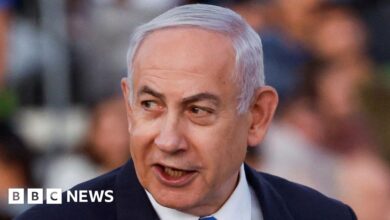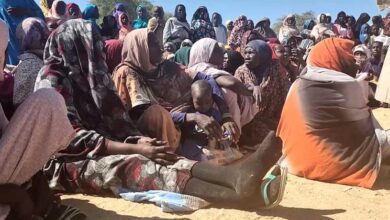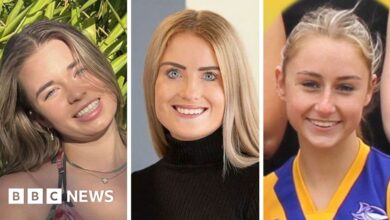Ivanishvili organized a massive protest before the important vote

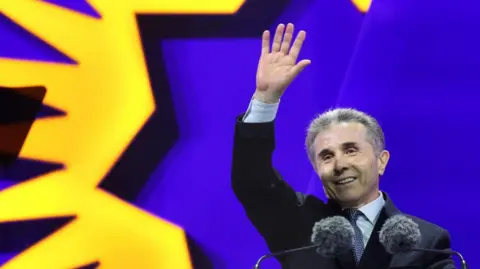 GIORGI ARJEVANIDZE/AFP
GIORGI ARJEVANIDZE/AFPThree days before Georgians cast their ballots in an election seen as a decisive moment in their country’s future, the founder of the ruling Georgian Dream party told thousands of supporters that “we choose peace.” peace, not war”.
After 12 years in power, Bidzina Ivanishvili’s Georgian Dream faces a tight race with four opposition groups to cling to power in the Caucasus state.
His party accused the opposition of aiming to lure Georgia into the war in Ukraine, but the opposition said the election was a choice between Russia in the Georgian Dream, or Europe.
Ivanishvili, considered Georgia’s most powerful figure, told the crowd in Freedom Square that they should have “a decent European future based on equality”.
Georgians overwhelmingly support joining the European Union, but the EU suspended that process this year amid harsh accusations from Brussels that the government was moving against democracy.
The party has been accused by the opposition of sabotaging Georgia’s bid to join the EU, although Georgian Dream insists it is still on track to do so by 2030.
Opinion polls in Georgia are not considered reliable, but the latest survey shows that Georgian Dream will win the race, but the four opposition parties combined will defeat them.
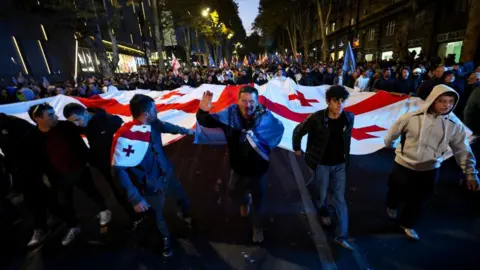 GIORGI ARJEVANIDZE/AFP
GIORGI ARJEVANIDZE/AFPLast Sunday, the opposition filled Freedom Square and surrounding streets with supporters waving Georgian and EU flags.
This time it was the turn of the Georgian Dream, as a group of supporters waved Georgian flags and the party marched towards the stage chanting “Long live the Georgian Dream”.
Ivanishvili, the party’s billionaire founder and honorary chairman, spoke to the crowd behind protective glass.
Tbilisi mayor and Georgian Dream secretary general Kakha Kaladze repeated his message, accusing “the so-called friends of Georgia” of direct interference in the upcoming elections on Saturday: “We refuse become anyone’s vassal, subject to someone else’s wishes.”
Those words may not win hearts in Tbilisi or other major cities of Georgia – a country of about 3.5 million people. But in regional and rural areas it is a different story.
“I don’t like the Georgian Dream, but I hate it [former governing party] National Movement – and at least we will have peace,” said Lali, a 68-year-old voter in northern Tbilisi.
Georgians vividly remember the five-day war with Russia in 2008, when the Nationalist Movement was in power and 20% of the country remained occupied.
However, there have been concerns about fairness in this election. There have been reports of civil servants, teachers and firefighters being threatened into voting for the government.
“They were threatened that they could lose their jobs… saying people would find out who voted for whom,” said Vano Chkhikvadze, Director of the EU Integration Program at the Civil Society Foundation. “This is especially effective in regional areas – these are small communities and everyone knows each other there.”
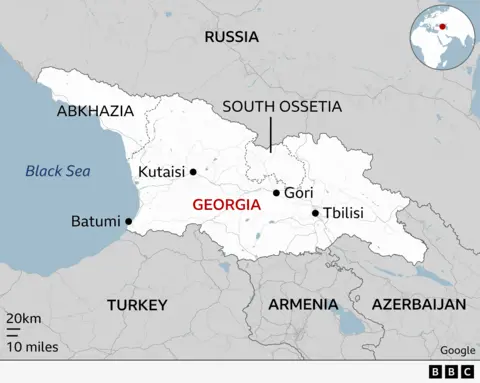
The National Movement (UNM) is the largest of the four opposition groups and Ivanishvili has called for the movement to be banned, along with anyone else in the opposition considered “enemies of the people and enemies of the country”.
Georgian Dream (GD) passed two major laws that were widely criticized in the West. Earlier this month, the party’s parliamentary speaker signed an anti-LGBT law into law, defying pro-Western president Salome Zurabishvili, who had refused to do so.
And in May, a Russian-style “foreign agent” law targeted foreign funding of media and civil rights groups, ahead of mass protests in Freedom Square and the nearby parliament .
Zurabishvili called on Georgians not to be “afraid”. Speaking on pro-opposition Formula TV, she said they should vote for opposition parties that have signed up to action plans to join the EU.
Georgia has become so polarized that larger, government-supported television channels tell one story, and opposition channels tell another.
Georgia Dream is still in the process of joining the EU. It even turned the EU’s 12 yellow stars into its own blue star symbol, despite the EU freezing Georgia’s application to join.
But one of its election posters was far more sinister, featuring six opposition leaders, all chained above the message: “No war, no agents.”
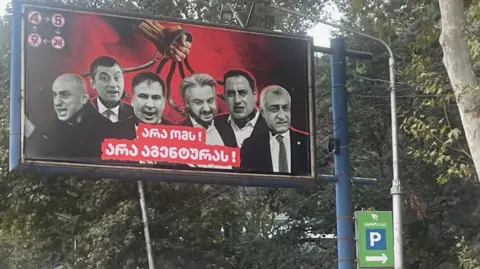
It fits with GD’s general rhetoric about shadowy figures in the West – described as a “global war party” – pushing Georgia into war and the opposition doing the West’s bidding.
Former Georgian ambassador to the EU Natalie Sabadnadze said that the ruling party seems to be pursuing the Viktor Orban-style Hungarian model with a message of peace with them – or war with the opposition.
“The Georgian Dream wants an absolute majority to dismantle the system and do it legally – just like Hungary. But they shouldn’t get one,” she believes.


